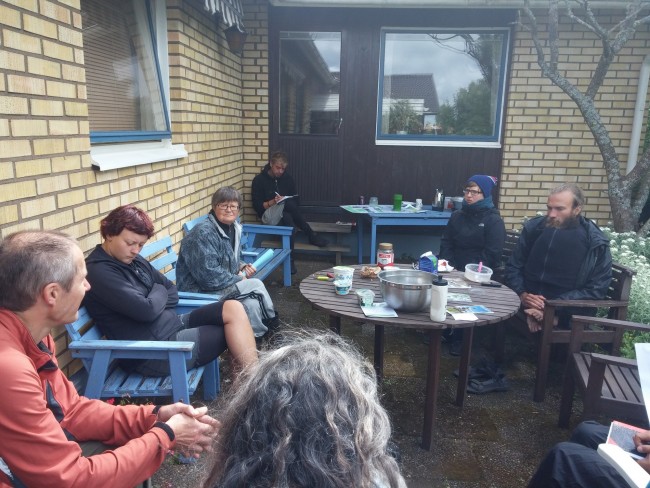Broddetorp is a small village of about 140 inhabitants somewhere between Vättern and Vänern, the two big lakes of Sweden. The Biketour spent the night from the 22nd to the 23rd of July there.
Broddetorp got our attention when we were looking for anti-mining groups in the area (there is a lot of uranium and rare earth mining projects going on in that region). We found a group called Nej till Uranbrytning and got in contact with their member Birgitta. A coincidence for such a small village, it turned out that a former participant of the Biketour also lives there.
Birgitta was very welcoming and let us camp in her garden. She is a retired neuro-scientist (as far as I remember), and turns out to be an activist involved in a lot of initiatives around the region that go far beyond anti-mining struggles.
The struggle against the uranium mine has long been won (like many anti-mining struggles in Sweden), but Birgitta introduced us to some of the initiatives that she and other people in the region are working on (there were more things that I can not remember):
- They have initiated a local carpooling system (Mobilsamåkning Broddetorp) where locals who need to drive one of the nearest towns can find each other and share a car.
- In Broddetorp, they created a community garden where the people from the village grow vegetables together. Also, every class in the local primary school got a space where the students practice gardening.
- They met up with the local people and politicians to talk about tourism in the region, and try to promote the idea of sustainable tourism (for example on bikes).
Birgitta asked us for advice how the local infrastructure can be improved to attract more cycle tourists. We recommended to build well-paved bike paths (the best ones are on abandoned train lines) and to have an infrastructure of free camp-sites with a compost toilet and drinking water, and maps along the roads and a website to show where they are (like in Denmark).






